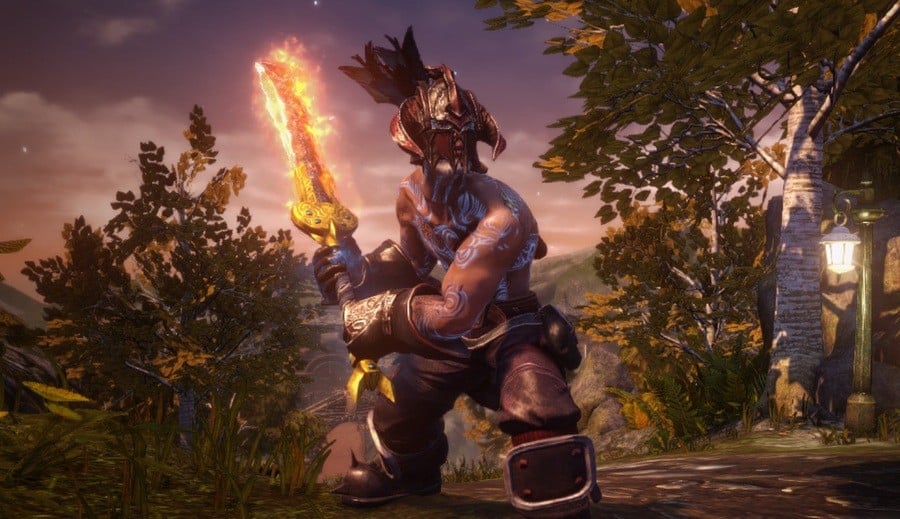
It's understandable that anyone working closely on a project of this magnitude for such a long time is bound to see the faults more readily than its finer points, but are the team proud of what they achieved with Fable? "I think that’ll very much depend on who you ask," Dene replies. "I live for ‘mood’ and ‘tone’. My goal was to create a world that felt unlike anything anyone had lived in before, at least in video games. I wanted players to look at a screenshot, hear a snippet of music, or catch a fragment of dialogue and say: ‘Oh! That’s Albion. That’s Fable!’ Every so often I hear from people who loved the same things I loved about the series. It brings a big wide smile to my face every time."
"Fable was smaller and less ambitious than we’d planned," admits Simon. "At the same time we combined a fun action combat system, very complicated AI and simulation systems, a unique visual style, European folk tales, British humour, a hero that morphed according to the way you played, and hundreds of other innovations into this weird, wobbly wonderful thing that somehow held together."
I think one of my favourite parts of working on Fable was that it aimed for the stars – a mad goal, especially when you only have a slingshot
"I’m personally incredibly proud of the game," says Buzugbe. "We didn’t hit all our lofty goals but we still shipped a really original take on a RPG that had so many fresh ideas it was overflowing. It had so much heart and charm so many people took Albion to their heart and their journey was unique enough that the memories still clamour for another tale. Now and again, you stumble across someone old enough to remember the first one and their face lights up as they recount a tale. That makes it all worth it. I think one of my favourite parts of working on Fable was that it aimed for the stars – a mad goal, especially when you only have a slingshot. My personal aim was to make a game I’ve never played before. I guess I didn’t succeed in that as I was too burnt out to play the thing after five years of developing it.”
Edwards feels the game has aged less gracefully than his former co-workers. "I look back at Fable now, and I find it irritating. It’s slow, clunky, the levels are not great, the combat is awful and the flow is all over the place. But it still has that something special about it, and for its time it was a revolution and definitely a game-changer. The people who made it were all supremely talented and a pleasure to work with, and their spirit is definitely infused into the game. Fable still inspires me and my work and Albion is something that gets into your blood. In a world of sterile high fantasy, stat-heavy, text-heavy RPGs, there will always be that land where you can do stupid things and have some fun and not have to worry."
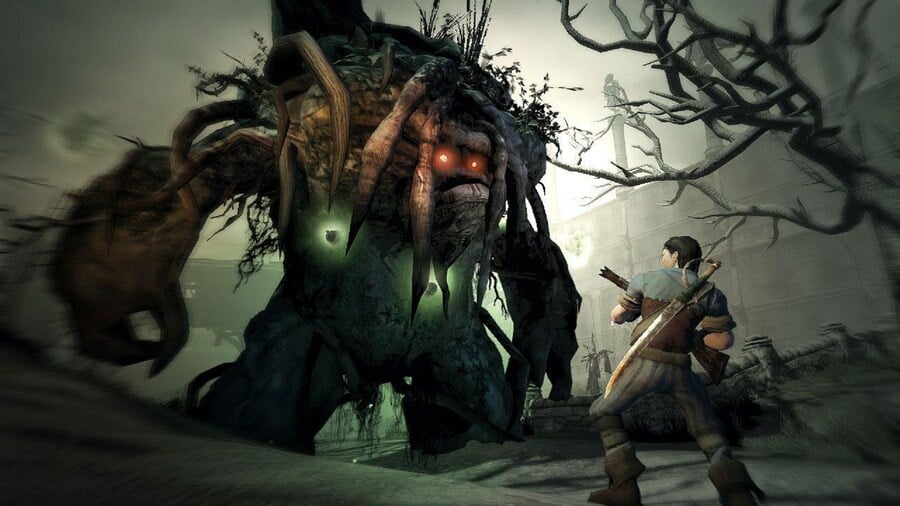
While you could argue that Fable fell slightly short of turning Molyneux's sky-high promises into solid reality, it's worth noting that few games – if any – have managed to triumph when it comes to creating a similarly nonlinear experience and a protagonist who changes due to the actions of the player; it may be an ideal that never gets convincingly realised.
"A world that transforms due to player actions is expensive," admits Dene. "It alters dialogue. It alters basic geometry, navigation and story flow. To do something like this successfully, you need decent phoneme generation so that dialogue can alter on the fly, referencing things the designers didn’t even think of. You also need all shadow-generation and lighting to be real-time, because lights might not be where the designers thought they were going to be… nor the buildings they were attached to! You need navigation meshes to be 100 percent dynamic because those broken stairs might be repaired while you’re sitting down and drinking a beer. There’s a research project – the name of which escapes me – to create an AI that can write a simple, convincing, engaging fairytale. The results are not good. If we’re to get a reactive world to a point where it is worth engaging with, we’ll have to either forego spoken dialogue, or shift engine tech along a bit, and remove baked shadows and lighting. I think we can already achieve some of the latter, but A.I. storytellers? Right now, not so much."
A world that transforms due to player actions is expensive. It alters dialogue. It alters basic geometry, navigation and story flow
"Creating something that complicated was hard then and I think it would be even harder today with people’s expectations," adds Buzugbe. "Look at the incredible world of Red Dead Redemption 2, an audio and visual masterclass. Try and add just one possible change to that world and you are looking at adding years of dev time.”
Simon thinks it's a challenge that may never be completed, even with the resources and processing power available to modern AAA teams. "Nonlinear, dynamic games pose unique technical challenges which take significant effort to manage. More importantly for the AAA space, these technical challenges impose design limitations and artistic constraints – for example, you can’t bake lighting, and because you don’t know which assets are going to be used, you often have to lower texture resolutions so they can all fit in memory. I’ll be interested to see if the new consoles with raytracing and fast SSD streaming change this. Tech aside, from the point of view of a player, the story of an RPG is particularly important. The quests and narrative framing are what gives colour and meaning to otherwise repetitive mechanics. There are only so many times you can ‘kill 15 rats’ before you question how you’re spending your life – see early MMOs for details. Ultimately, games are a complex system of smoke and mirrors, and the more freedom you give to the player, the harder it is to maintain the illusion."
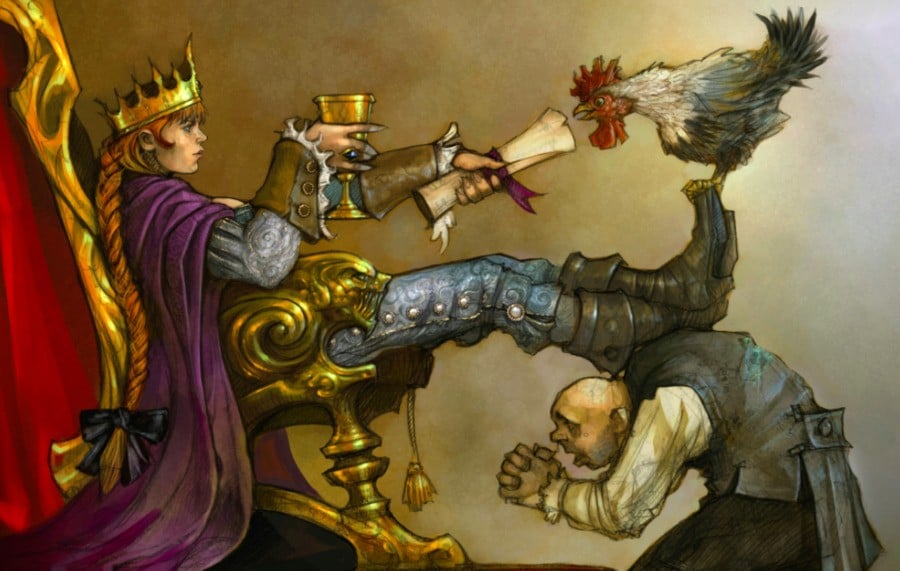
Fable had a decent crack at it though, and tried to expand on the concept in two mainline sequels on the Xbox 360. "I’m proud of Fable 2 and Fable 3," says Simon. "Fable 2 was almost as hard to make as Fable 1 – a new platform, a new engine, and a thoroughly reworked design. Fable 3 was our attempt to learn from these repeated mistakes, and to make a new Fable in under five years, without crunch, which we mostly succeeded at."
I left partway through Fable 3. It was the product of a ridiculous schedule driven by rather odious external forces who shall remain nameless. Their view was that if the game wasn’t closer to Uncharted in appeal, sales and schedule then Lionhead’s future was going to be bleak
"I liked Fable 2," adds Dene. "I left partway through Fable 3. It was the product of a ridiculous schedule driven by rather odious external forces who shall remain nameless. They didn’t believe single-player RPGs could ever sell in 2009, and that a Fable game should take a maximum of two years. Their view was that if the game wasn’t closer to Uncharted in appeal, sales and schedule then Lionhead’s future was going to be bleak. To my mind this was both a middle-finger to the fans, and a ridiculous use of a team who – by then – knew how to make Fable games."
Beyond Fable 3 – which was highly divisive, as Dene hints at – Fable's history has been a little less successful. "Fable: The Journey was made by a very passionate team, and the voice acting, motion capture, audio and world were fantastic," says Edwards. "Sadly, Kinect dictated the gameplay, and the ropey control response sank it. Fable Legends was just starting to become a full package when it was canned. It was easily the most beautiful game around. The waste of those assets and levels, and all that amazing music still upsets me."
The cancellation of Fable Legends also resulted in the closure of Lionhead itself – a tragic event that seemed to put an end to the franchise. However, 2018's free-to-play card game Fable Fortune showed there was still life in the series yet (well, at least until it was shut down earlier this year), and numerous reports suggest that UK-based Playground Games – custodian of the Forza Horizon franchise – is currently hard at work on a proper Fable sequel. What do the creators of the original make of this news, and what hopes do they have for the new game, given their aforementioned reservations about achieving this kind of epic adventure on modern systems and with a modern AAA team?
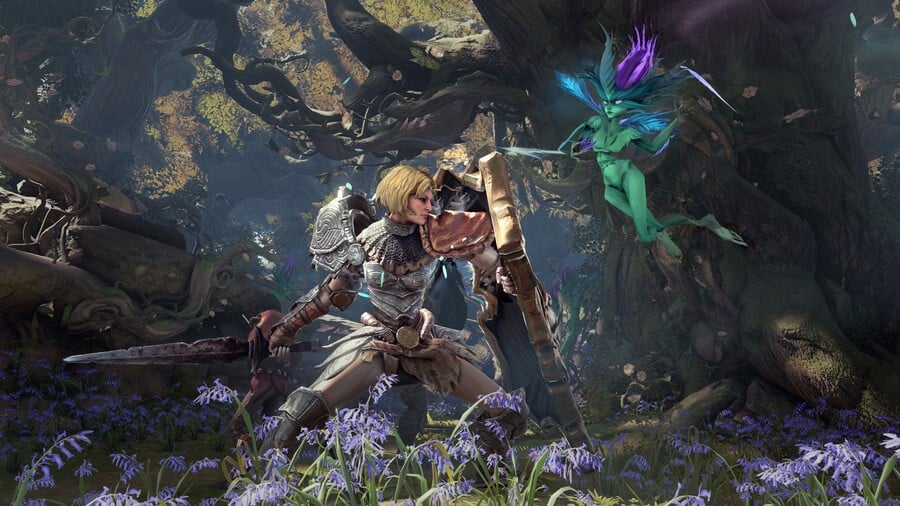
"If the people we think are making it are making it, then that tech could be amazing," says Edwards. "Seasonal changes, stunning vistas… However, I hope they don’t try too hard to be Fable, but also veer too far away. I don’t want sterile high fantasy and wooden characters and huge empty open worlds with no intrigue or nooks and crannies to explore. And I don’t want them thinking a fart expression and kicking a chicken is enough to be ‘Fable’. The game needs a spirit, a passion and be a melting pot of quirky individual geniuses, matched to super-talented tech folk and artists who don’t like straight lines.”
"I’d like it to be more than just The Witcher with condoms," adds Dene, who is currently working at one-man studio Fluttermind on the retro-style RPG Moonring, which shares some elements of Fable. "I think Fable is unique, silly, and parodies a lot of things people in RPG-land have taken for granted for decades. I also think Fable feels mythic and magical in a way that a lot of RPGs don’t. When every NPC has a potted history of everything that has happened in your world there is no room for inquiry, speculation or doubt. Without those there is no mystery. Without mystery, you have nothing."
I think Fable is unique, silly, and parodies a lot of things people in RPG-land have taken for granted for decades
For Buzugbe, it's all about creating a legendary game without the need for harmful crunch. "I’d like to see the dev team after it ships healthy and happy; the smoothest production known to man. As far as the game goes I hope it’s a more intimate tale set in the world of Albion. You step into the shoes of this girl or boy and the stories that unfold are truly unique, possibly funny but mostly memorable. But most of all, keep it small and manageable; not every game needs a huge open world. Some of the best stories can be told on one stage with very few prop changes."
"At Fable’s core was the understanding that fantasy RPGs are very, very silly, but take themselves very, very seriously,” adds Simon. “We tried hard with Fable to embrace the silliness, gently, without breaking the illusion. Getting that balance right will be crucial. Most importantly, I want to feel that the developers love the world they’re making, and enjoyed making it. This is one of the things you get from indie games these days, and less so from AAA – the sense of emotional investment from the developers."
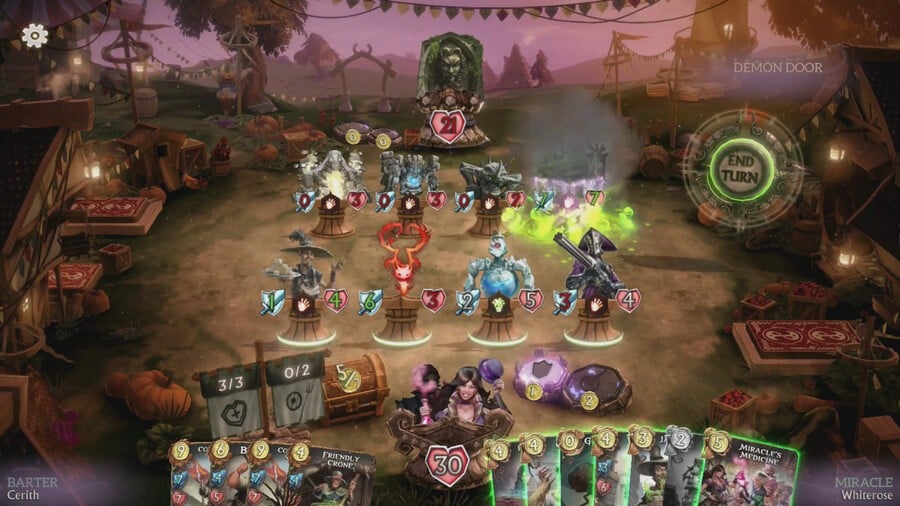
Knowing that a new game is in development, does the original Fable team wish that they were involved? "I was 22 when we started making Fable," answers Simon. "In hindsight, we were obviously naive, took unnecessary risks, and didn’t have a clue about organising a large project efficiently. I’d like to think that, 20 years on, we’d do a better job. At the same time, honestly, some of the things that worked in Fable were the result of naivety, ignorance and chaos; we wouldn’t have tackled some of the things we did if we’d known how difficult they’d be, and some of the best ideas came out of costly failures. It’s a highly inefficient development process that scales poorly, but it helped make Fable unique."
This article was originally published by purexbox.com on Mon 30th March, 2020.






Comments 6
Interesting piece. Even a mention of Dungeon Keeper gives me warm fizzy feelings in my stomach.
That was a fantastic read! Very well done with the article! I love Fable so much. Honestly I think I have the best memories with Fable 3 as I made a really good friend on that game & we did everything together on there. I even enjoyed Fable Heroes and I tried to enjoy The Journey as best I could. Kinda hard when the Kinect wasn’t easy to cooperate with you correctly. The heads of Xbox back then were aholes by pushing it into multiple games. I was so angry when Lionhead announced that Fable Legends (of which I still have installed on my Xbox to this day) was being shut down & later that they were closing. What a waste. Hopefully PlayGround are working on Fable IV & it’s a return to form for the series.
also heard he has a new kick starter for his virus cure that also comes with VR headset and 12k
Awesome read! Well done on the article! 👍🏻
Amazing article and a great read!
Fable is one of gaming's greats, cannot wait for a return to it's world.
If we can get a return to form for Halo AND Fable that'll be worth the Series X price right there
Really interesting read, thanks! As someone who’s never owned or played an Xbox, I didn’t really know anything about Fable’s development and always assumed it was a Molyneux game, so I’m glad I know better now! If I were to ever get an Xbox, Fable would be one of the first games I played on it.
Show Comments
Leave A Comment
Hold on there, you need to login to post a comment...